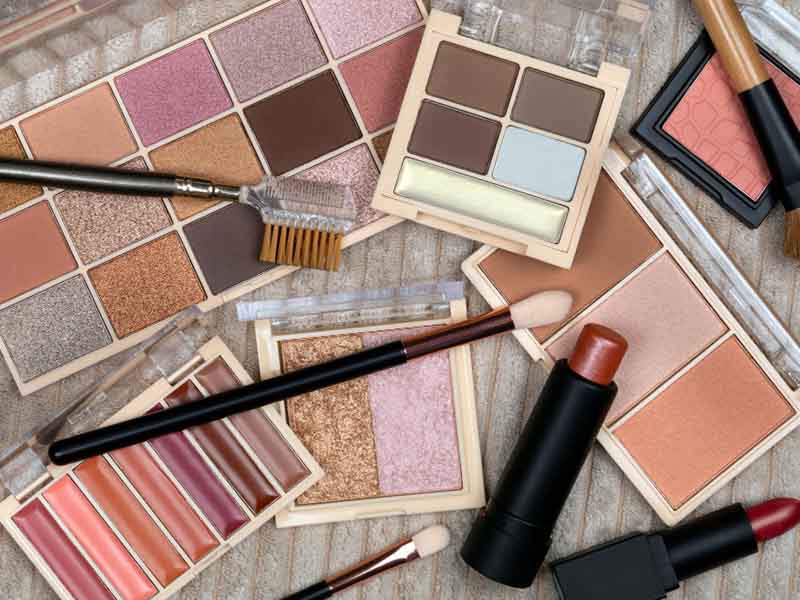Makeup is a common part of many people’s daily routine, but some may wonder if it could be causing their acne. The question of whether makeup causes acne has been a topic of debate among dermatologists and skincare experts for some time. While some people believe that makeup can clog pores and lead to the formation of acne, others argue that it shouldn’t cause acne as long as it is properly removed at the end of the day, and the skin is properly cleansed. In this article, we will explore the topic of whether makeup causes acne and discuss some preventive measures and treatment options that can help those who experience acne breakouts from makeup.
Does Makeup Cause Acne?
Makeup is a common part of many people’s daily routine, but some may wonder if it could be causing their acne. The question of whether makeup causes acne has been a topic of debate among dermatologists and skincare experts for some time.
Some people believe that makeup can clog pores, leading to the formation of acne. Others argue that as long as makeup is properly removed at the end of the day and skin is properly cleansed, it shouldn’t cause acne.

There are also different types of makeup that could have varying effects on the skin. Some ingredients commonly found in makeup, such as silicone or certain oils, could potentially contribute to the development of acne. On the other hand, some makeup products are specifically designed to be non-comedogenic, meaning they are less likely to clog pores and cause acne.
Overall, the answer to whether makeup causes acne is not a simple yes or no. It may depend on factors such as the individual’s skin type, the specific makeup products used, and how consistently and effectively the skin is cleaned.
How Makeup Causes Acne?
While the question of whether makeup causes acne is not a simple one to answer, dermatologists do agree that certain ingredients commonly found in makeup can contribute to breakouts. Some of these ingredients include fragrances, oils, silicones, parabens, and dyes.
- Fragrances are often added to makeup products to give them a pleasant scent, but they can be irritating to the skin and cause inflammation, which can lead to the development of acne. In fact, fragrances are among the top five most common allergens found in cosmetics, according to the American Academy of Dermatology (AAD).
- Oils are another ingredient commonly found in makeup that can contribute to acne. Certain oils can be comedogenic, which means they clog pores and cause breakouts. It’s important to note, however, that not all oils are bad for the skin. In fact, some oils, such as jojoba oil, can actually be beneficial for acne-prone skin.
- Silicones are another common ingredient in makeup that can contribute to acne. Like oils, silicones can be comedogenic and clog pores. However, not all silicones are created equal, and some are less likely to cause breakouts than others. Dimethicone, for example, is a type of silicone that is often used in makeup products and is considered to be non-comedogenic.
- Parabens are preservatives commonly found in makeup, and they can cause irritation and inflammation in some people. While the AAD notes that parabens are generally considered safe in small amounts, some people may be more sensitive to them and develop acne as a result.
- Finally, dyes can also be irritating to the skin and contribute to the development of acne. Red dyes, in particular, are known to be more likely to cause allergic reactions and inflammation.

Overall, while makeup itself may not necessarily cause acne, certain ingredients commonly found in makeup products can contribute to breakouts. If you’re prone to acne, it’s important to choose makeup products that are labeled as non-comedogenic and to pay attention to the ingredients list to avoid those that are known to be problematic for acne-prone skin.
Makeup Causing Acne Prevention
While makeup can contribute to acne, it doesn’t mean that you need to give up wearing it altogether. Taking preventive measures can help you enjoy wearing makeup without worrying about acne breakouts. Here are some tips from dermatologists that you can follow to prevent makeup-induced acne:
- Choose non-comedogenic products: When choosing makeup products, look for those that are labeled as “non-comedogenic.” These products are specially formulated to not clog pores and can reduce your risk of developing acne.
- Avoid fragrances: Fragrances are often added to makeup products, but they can be irritating to the skin and cause inflammation that can lead to acne breakouts. Therefore, it’s best to choose fragrance-free products.
- Check the ingredients: It’s important to read the label and check for any ingredients that are known to cause acne, such as oils, silicones, and parabens. These ingredients can clog pores and lead to acne breakouts, so it’s best to avoid them.
- Remove your makeup before bed: Sleeping with makeup on can lead to clogged pores and acne breakouts. So, make sure to remove your makeup before going to bed.
- Clean your makeup brushes regularly: Dirty makeup brushes can harbor bacteria, which can lead to breakouts. Make sure to clean your makeup brushes regularly to prevent the buildup of bacteria and other impurities.

By following these tips, you can minimize the risk of developing acne caused by makeup. It’s essential to take care of your skin to maintain its health and beauty, and using the right makeup products is an important aspect of that care.
Acne Caused by Makeup Treatment
If you have developed acne caused by makeup, there are various treatment options available to help you get rid of the breakouts. The treatment options may vary depending on the severity of your acne and your skin type.
Firstly, it’s important to stop using the makeup product that caused the acne breakout. Switching to non-comedogenic makeup products and avoiding ingredients that can clog pores can help prevent further breakouts.
For mild acne caused by makeup, over-the-counter topical treatments such as benzoyl peroxide or salicylic acid can be effective. These treatments work by reducing inflammation and killing the bacteria that cause acne.

If the acne is more severe, a dermatologist may prescribe topical or oral medications, such as retinoids, antibiotics, or hormonal treatments. These treatments work to reduce inflammation, unclog pores, and regulate the production of oil on the skin.
In addition to medication, your dermatologist may recommend professional treatments such as chemical peels, microdermabrasion, or laser therapy. These treatments work by removing dead skin cells, unclogging pores, and stimulating collagen production to improve the overall health of your skin.
Overall, treating acne caused by makeup involves a combination of preventive measures, over-the-counter treatments, prescription medications, and professional treatments. Consulting with a dermatologist can help you determine the best treatment plan for your individual needs and skin type.
For those dealing with persistent or stubborn acne issues, especially if you suspect your makeup products may be contributing to breakouts, consulting an acne dermatologist can be a game-changer. At RemoteDerm, our expert dermatologists specialize in diagnosing and treating various skin conditions, including acne. If over-the-counter remedies haven’t provided the relief you need, it may be time to consider professional guidance.
Final Thoughts: Can Makeup Cause Acne?
In conclusion, while makeup itself may not necessarily cause acne, certain ingredients commonly found in makeup products can contribute to breakouts. Fragrances, oils, silicones, parabens, and dyes are some of the ingredients that may contribute to acne development. To prevent makeup-induced acne, individuals should choose non-comedogenic products, avoid fragrances, check the ingredients, remove makeup before bed, and clean makeup brushes regularly.

Patients can benefit from Remotederm online dermatology consultation from the comfort of their homes. If someone has developed acne caused by makeup, stopping the use of the product that caused the breakout is the first step in treating acne. Over-the-counter topical treatments such as benzoyl peroxide or salicylic acid may be effective for mild acne, while dermatologists may prescribe topical or oral medications for more severe cases. Taking preventive measures and seeking appropriate treatment can help individuals enjoy wearing makeup without worrying about acne breakouts.
FAQs
1. What is acne?
Acne is a common skin condition that occurs when hair follicles become clogged with oil and dead skin cells, leading to the formation of pimples, blackheads, and whiteheads.
2. Can makeup itself cause acne?
The answer is not straightforward. While some people believe that makeup can clog pores and lead to the formation of acne, others argue that it shouldn’t cause acne as long as it is properly removed at the end of the day, and the skin is properly cleansed.
3. What are some non-comedogenic makeup products?
Non-comedogenic makeup products are specially formulated to not clog pores and cause acne breakouts. Some examples include mineral-based makeup, oil-free foundations, and water-based moisturizers.
4. Can natural makeup products cause acne?
Natural makeup products can still cause acne, especially if they contain ingredients that are known to be comedogenic or irritating to the skin. It’s important to always read the label and check the ingredients list.
5. What are some of the other factors that can cause acne?
Other factors that can contribute to acne include genetics, hormones, stress, and certain medications. It’s important to address these underlying factors in addition to avoiding makeup products that can worsen acne.
